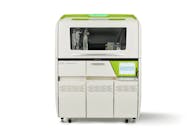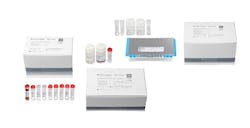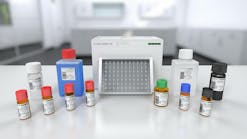Roche granted FDA Breakthrough Device Designation for pTau217 blood test to support earlier Alzheimer's disease diagnosis
Roche announced that its Elecsys pTau217 assay received Breakthrough Device Designation from the U.S. Food and Drug Administration (FDA).
This blood test, which is being developed in collaboration with Eli Lilly and Company, will be used to help identify the presence or absence of amyloid pathology in individuals, which can help ensure they are able to receive appropriate care. This may include participation in clinical trials or access to approved disease-modifying therapies. If approved, the test could help rapidly broaden access to a more timely and accurate diagnosis and potentially mitigate the impact of Alzheimer’s disease on people and society.
pTau217, which is a phosphorylated fragment of the protein tau, is a biomarker that has shown the ability in research settings to distinguish Alzheimer’s disease from other neurodegenerative disorders and has shown strong performance relative to other biomarkers.
Elecsys Phospho-Tau (217P) is intended to be an in-vitro diagnostic immunoassay for the quantitative determination of the protein Phospho-Tau (217P) (pTau217) in human plasma from individuals aged 60 years and older. The test is intended for use as an aid in identifying amyloid pathology, a pathological feature of Alzheimer’s disease.
A positive Elecsys pTau217 result indicates a high likelihood of having a positive amyloid PET/cerebrospinal fluid (CSF) result.
A negative Elecsys pTau217 result indicates a high likelihood of having a negative amyloid PET/CSF result.
An indeterminate pTau217 result indicates uncertainty on the amyloid PET/CSF result.
The pTau217 result should be used in the diagnostic pathway in conjunction with other clinical information.





